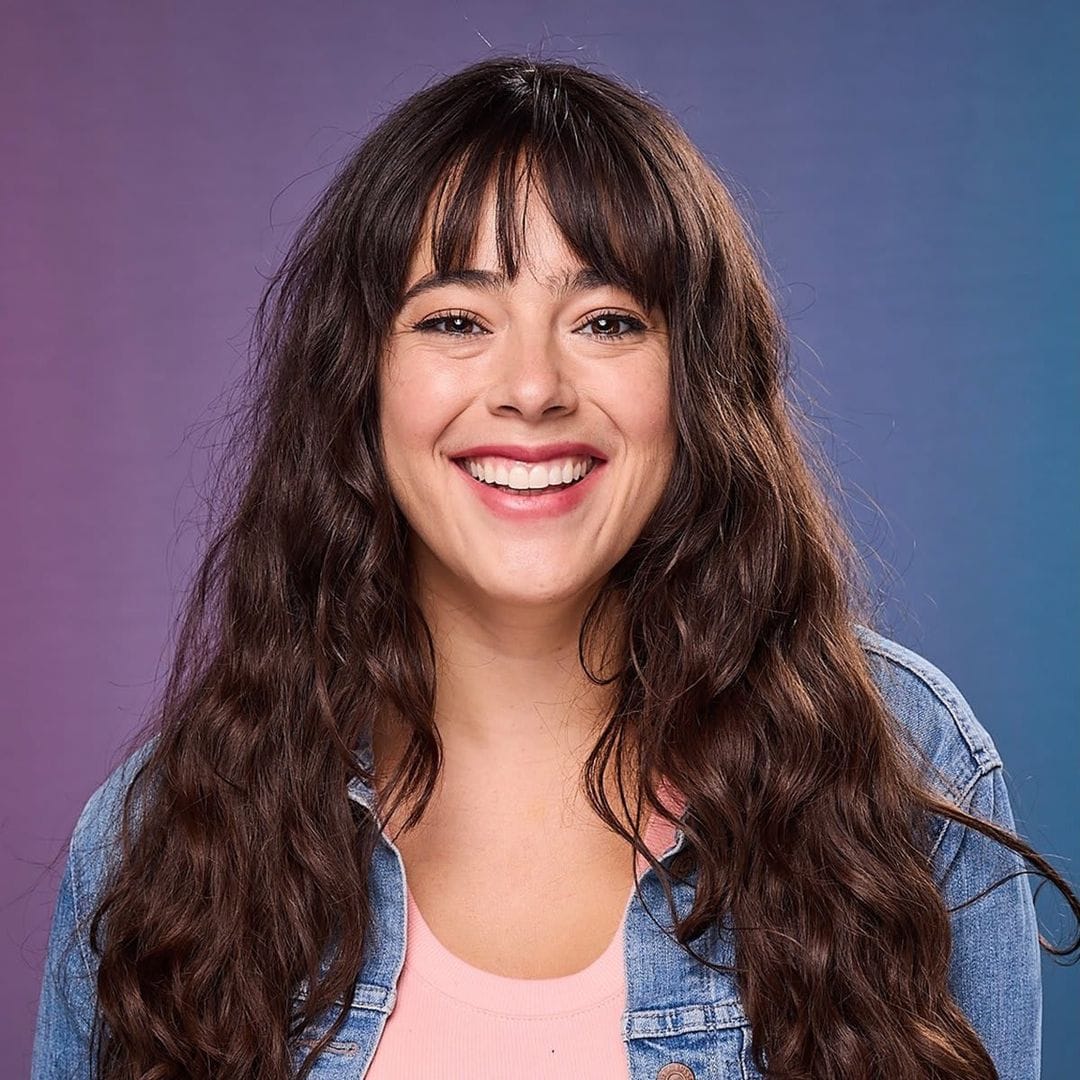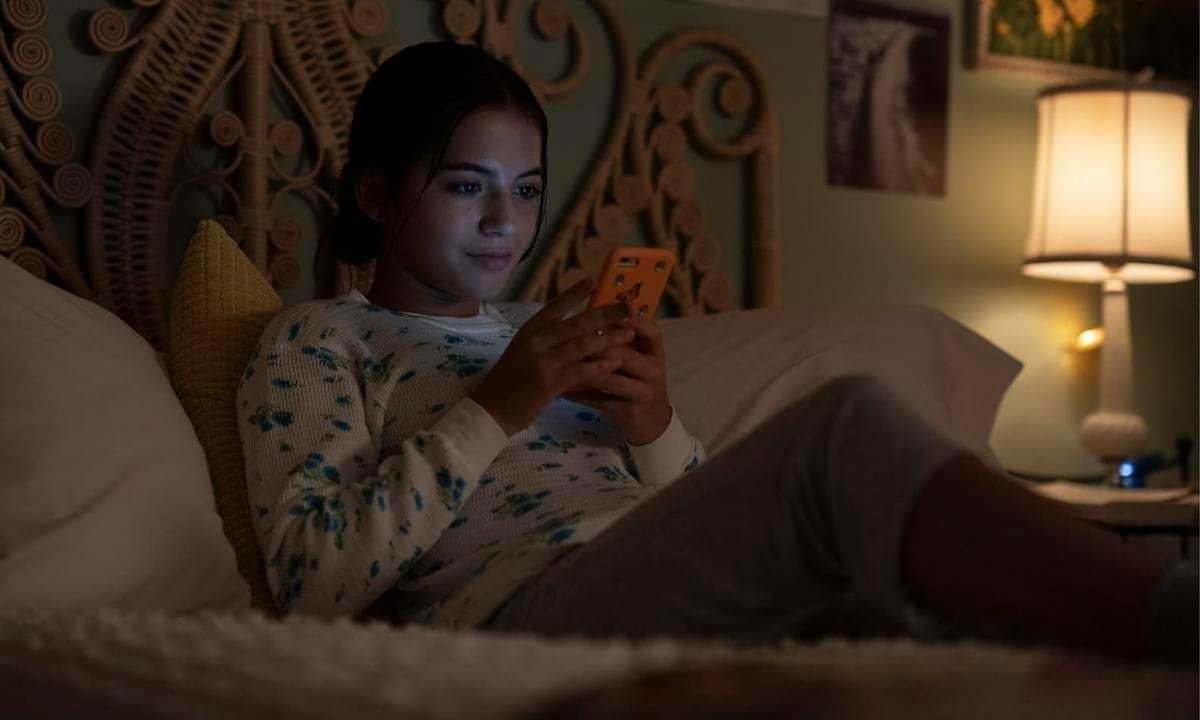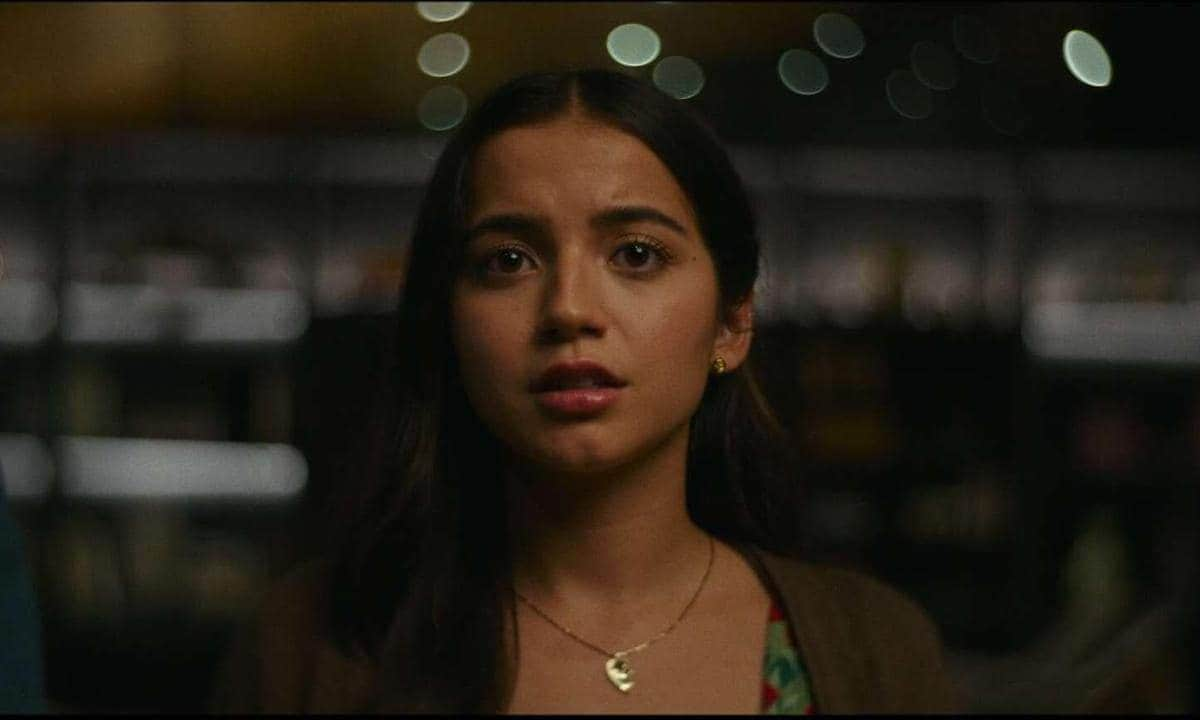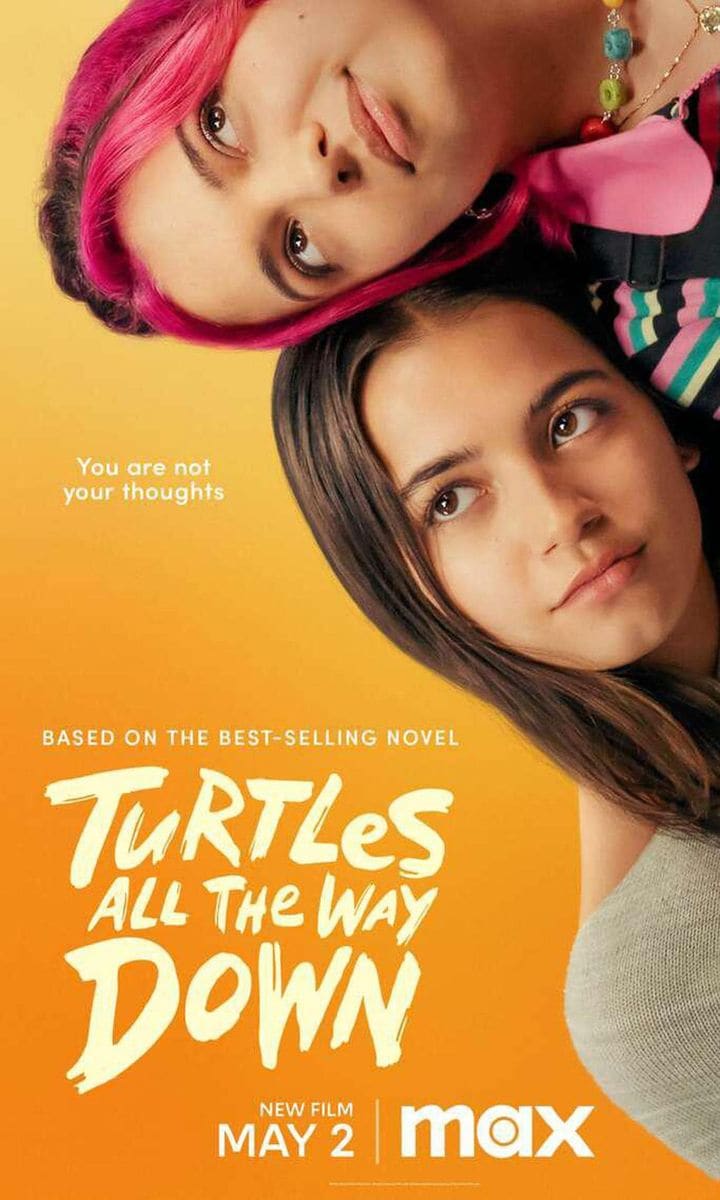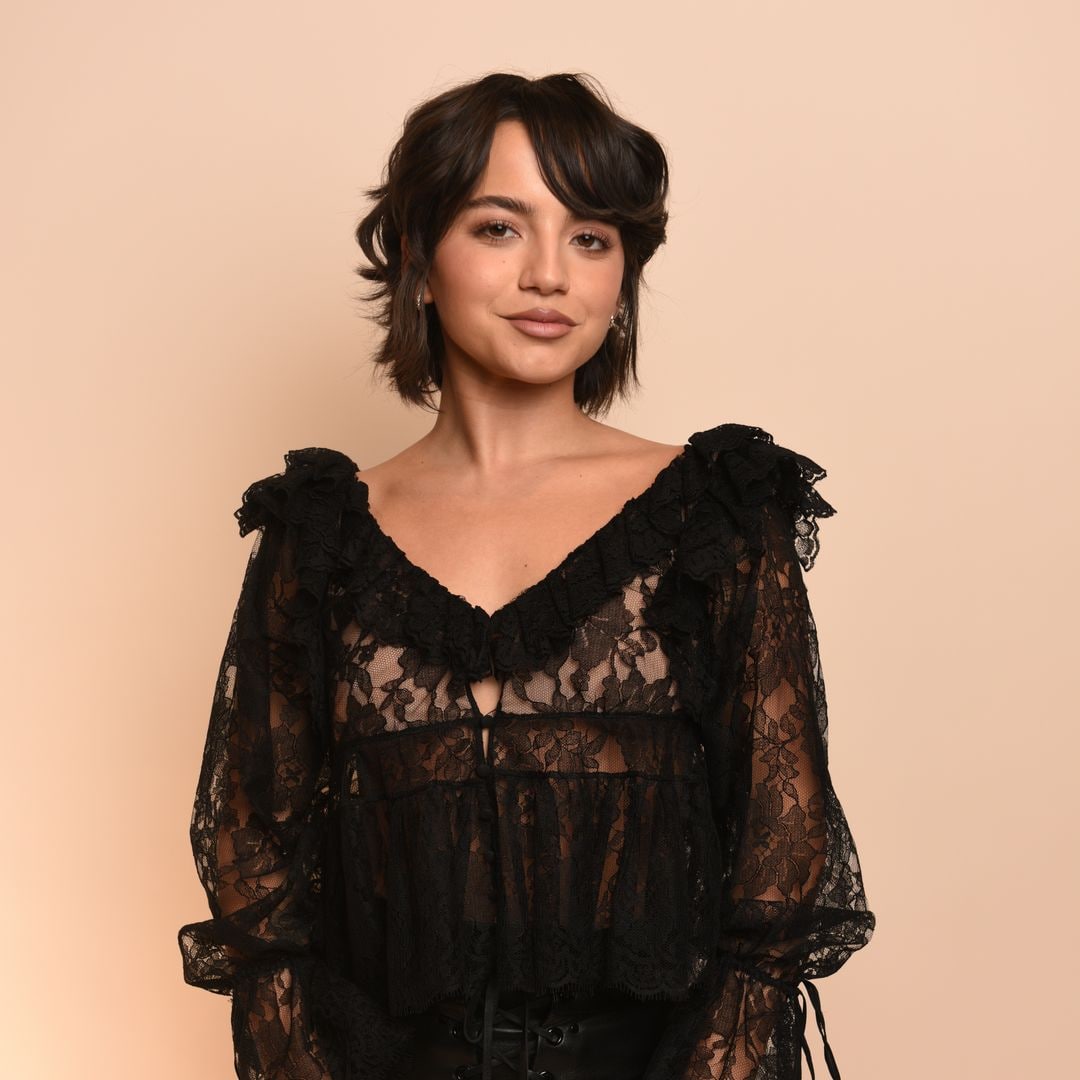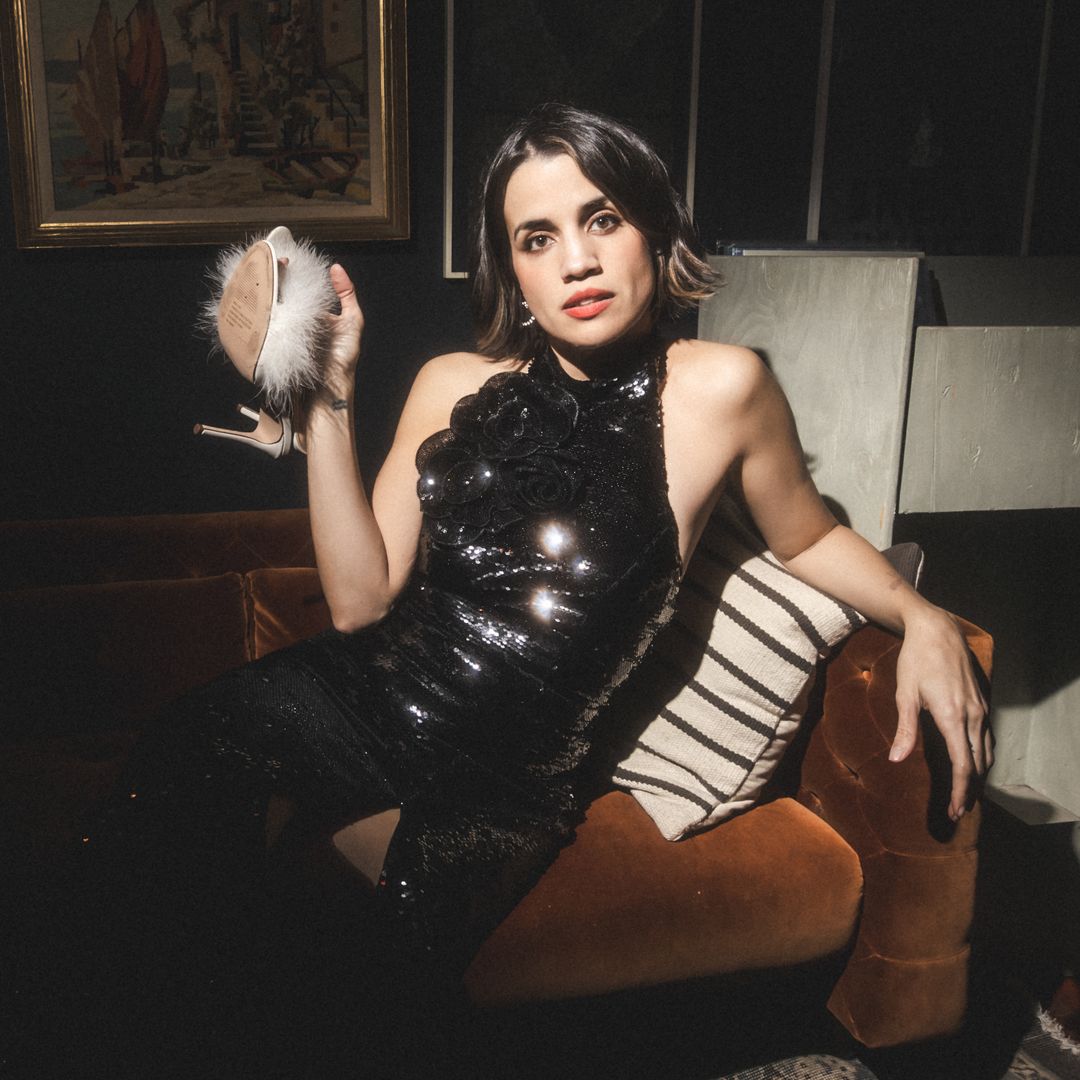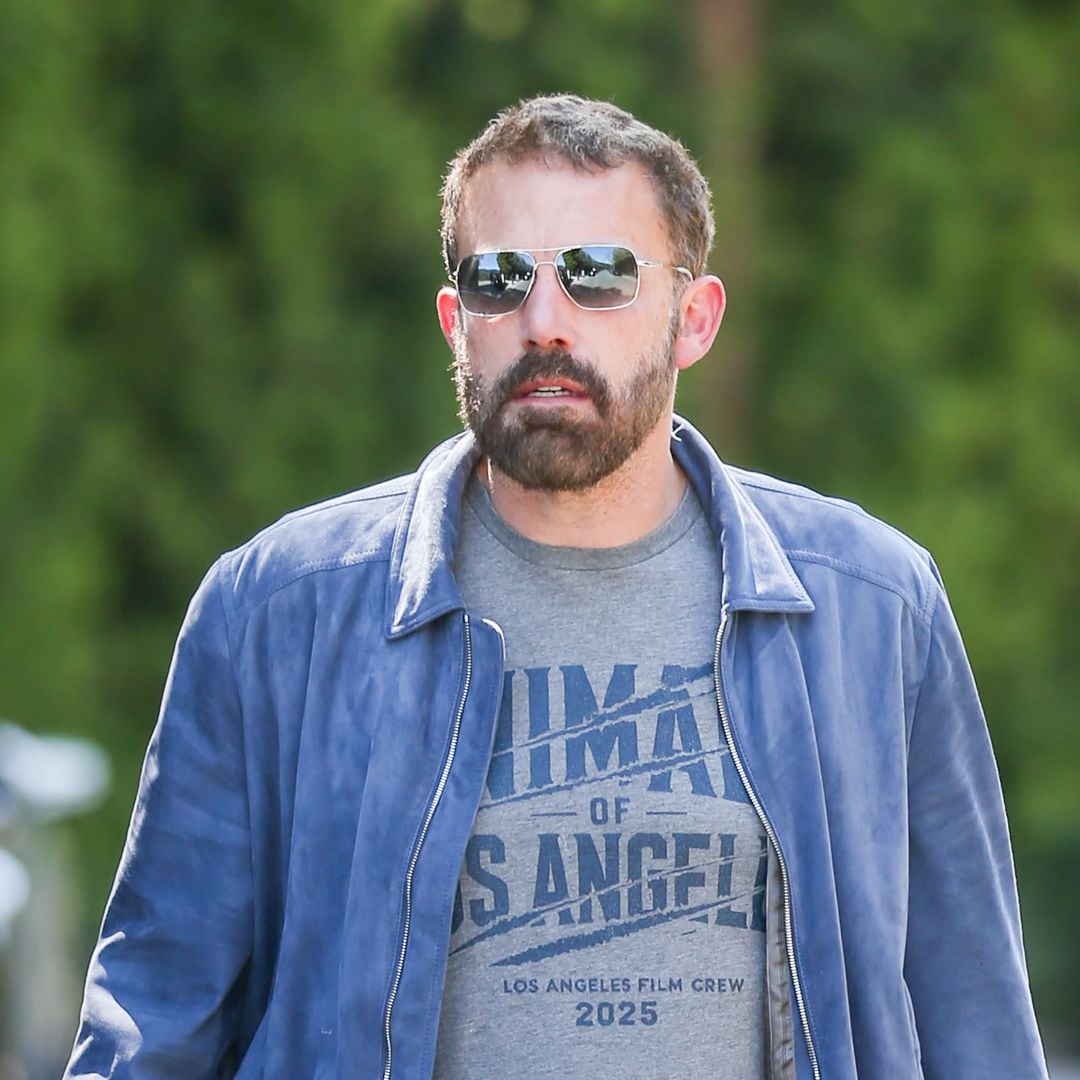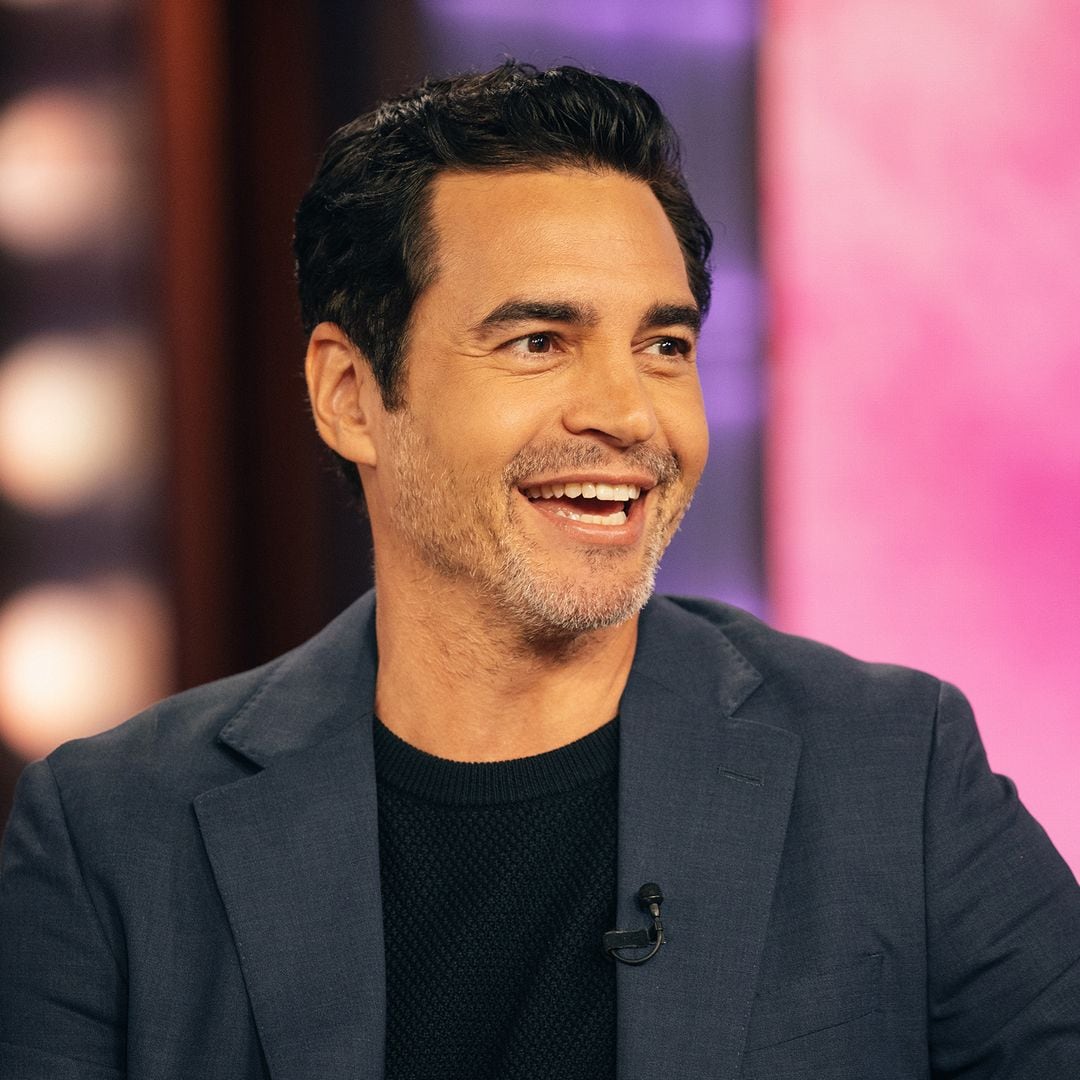Isabela Merced has played many characters, but none hit as close to home as her new film, Turtles All the Way Down. Based on the 2017 novel of the same name by John Green, who lives with obsessive-compulsive disorder, the film tackles anxiety and OCD through its 17-year-old protagonist, Aza Holmes, played by Merced.
Directed by Hannah Marks, Turtles All the Way Down centers around Aza’s bond with her best friend Daisy, and her romantic interest in a boy named Davis, whose father is dealing with legal troubles. As Aza and Daisy investigate a disappearance to claim a reward, Aza’s struggles with OCD intensify, affecting her relationships and her sense of self.
HOLA! had the opportunity to talk to Merced via Zoom ahead of the film’s release, where she opened up about her struggles with anxiety and why this film holds such a special place in her heart. She sat down with her hair styled as a spiral in the front and spiral earrings, representing a theme in the film, “thought spirals.” It’s something Merced knows all too well. “Mine are very specific, in the sense that if I’m feeling anxious, usually it’s the last sentence that someone said before I started feeling anxious. I’ll repeat that in my head like many times until I become self-aware that I’m repeating it in my head or even saying it under my breath,” she told us.
That last sentence sort of carries me through my thought spiral. It’s like I’m saying this sentence, but my thoughts are compounding and becoming different, and it is very weird - I’m aware. Sometimes, my body will mimic the syllables, and then it becomes a cramp in my foot or hands.” Read the rest of her candid interview, where she opens up about how she related to Aza, her emotional reaction to watching the film with her mom, and more.
So it sounds like this was an important role for you because you relate to it with the mental health struggles.
This character is probably the most similar to anyone I’ve ever played except she’s a little bit younger than me. So we’re in different stages of life, but also she is an introvert, and I’m an extrovert. But I hate that every time I tell people that I’m extremely anxious, everyone’s like, ‘No, you’re so good in social settings.’ I’m like, that doesn’t mean I’m not an anxious person. Just because someone is an extrovert doesn’t mean they’re not a mess.
And there’s a lot of masking that goes on when you’re someone with anxiety, let alone in this industry.
Heavy internal thoughts and dialogue usually get masked by me over-exerting myself into a conversation or hyper-focusing on someone else to distract from my inner complexities.
I think every part, every character that we play, will linger with us. What parts of Ava stayed with you after filming wrapped?
I was talking about this a little bit, how I play different characters, and there’s a wide variety. I’m really proud of the fact that I’ve been able to have a career full of such colorful and different characters, and I feel like I don’t discover them. I just discover parts of them in me, and with that, they’re highlighted throughout the experience. I learn more about that side of me through the character. I’ve learned so much, and I continue to learn so much - that process hasn’t stopped. I think with more people even speaking to me and coming up to me and telling me how the movie has impacted them, I’ll learn about how it has impacted me. Specifically, her inability to focus on others, as Daisy puts it, a “pathological uncuriosity.” I feel like I need to be better at being curious about others as opposed to myself, for example.
I saw an interview that you had done with John, and you mentioned how you blacked out during what you would consider the climax of the film, what do you think triggered that?
Yeah, watching that interview and even watching the movie is so weird because I feel like I’m in a completely different place, maturity-wise. A lot of my friends have even told me that I’ve just transformed as a person, probably thanks to this movie. But yeah, that scene was really interesting because I’ve been there. I’ve had experiences like that, that are just extremely dark and very humiliating to even mention to someone or have someone be there and watch it happen. It was really interesting to have what is normally a private moment on a movie set but then, on top of that, shown to the world. Like it’s ugly, it’s not pretty, and it’s not happy in any way. So I feel like, yes, I blacked out, but it wasn’t because I didn’t know what to do. It’s because I knew exactly how it felt.
What was your experience like watching that scene for the first time?
I think I cringed, but not because I didn’t like my performance or because I was too aware. I think it was really hard seeing myself in that state of mind, and then it was hard seeing the mom there because I thought about how much my mom doesn’t understand me. I think the scene that actually had even a more profound impact on me is when Aza ends up in the hospital and realizes she’s gonna have to stay there and be exposed to C. diff, and that’s where people contract that disease. And seeing the mom get so overwhelmed at how overwhelmed Aza is and not sure what to do. She’s trying her best and it really touched me, and - I’m getting emotional. I was just talking about it, like thinking about everything that my mom has had to go through.
This has been such an incredible year for you, and I’m sure you’re healing your mom in a way, and generations before, making your dreams come true. How has it been for your mom watching this?
Oh, it was really cool to see. I was with her, I think the second time I watched the movie. She was at one of the screenings, and she cried so much. She cries every time I do a movie, but this one was different because immediately after, she just looked at me says, ‘I understand now Bela, I get it.’ And that’s something that we’ve always struggled with, a very tumultuous past with having to explain what it is that I go through and why I do the things that I do because of my inner thoughts, and she’s never been able to understand it until this movie. And that’s really special to me. I don’t think it’s just because I’m her daughter portraying it. I think a lot of people will have the same reaction. They may not be Aza, they may not struggle with anxiety or OCD, but they know an Aza and have another way to understand it now.
I’m sure when it comes to negativity - we all saw the Madame Webb debacle - it’s probably not easy. What are some ways that you protect your peace when it comes to criticism and negativity?
I honestly stay off of social media. Honestly, I didn’t feel any sort of lull in my energy and positivity when that came out. I created a beautiful friendship with Sydney and Celeste that I’m just so grateful for. And we send each other Madame Webb memes in our little group chat that we have because we find them entertaining. But what I hope for this movie is - it just means a lot to me. It’s very special to me, more than many of my other projects. I’d say, “Instant Family” holds another similarly special place in my heart. I think what happens with these movies and things that garner a certain amount of attention is people sort of try to put a negative spin on it. It takes a life of its own, and then it gets into the muddy waters of social media. And so I really hope that people take it for what it is and the conversation stays relevant to the topics of the movie. And I also hope that people understand that we’re not saying that this is OCD and this is the poster child for OCD - it is not that. This movie is about so much more and also people who suffer from OCD - it doesn’t look the same for everyone. You don’t have the same compulsions, and you don’t have the same tendencies. And I think that’s really important. I want people to know that this is personal and true because it’s John’s experience. So no one - I better not see anyone invalidating John’s experience because he’s being very raw and being very vulnerable, and I will fight for that man, and no one could ever make me hate him.
,type=downsize)
